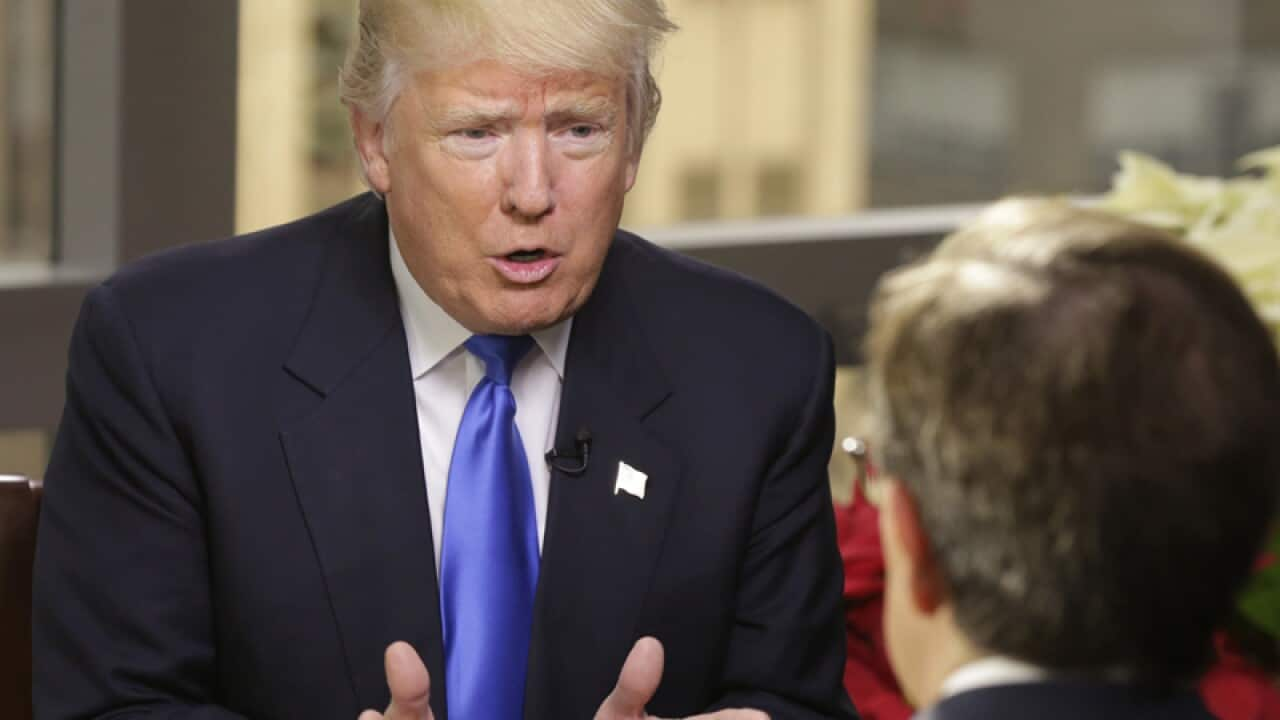The investigation, backed by both Democrats and Republicans on the Senate Intelligence Committee, could trigger forced testimony by officials of both Barack Obama's outgoing administration and the incoming government of Donald Trump, who won the November 8 presidential vote
US intelligence agencies allege that Russian President Vladimir Putin ordered a covert effort to interfere in the election to boost Trump and harm his opponent, Democrat Hillary Clinton.
RECOMMENDED STORIES

Big security risks in Trump feud with spy agencies, officials say
A report from the Director of National Intelligence released early this month says the Russians hacked Democratic Party computers and accounts to release files embarrassing to Clinton, and also conducted a campaign of media manipulation with the same aim.
But the public version of the report was questioned for offering only weak evidence of its claims.
An unproven dossier compiled by a former British MI6 intelligence agent also alleged close ties between the Trump campaign and Russian government, and said Moscow had lurid video of Trump with prostitutes while in Russia.
British ex-spy's report
"It is critical to have a full understanding of the scope of Russian intelligence activities impacting the United States," the Senate panel said Friday.
Trump, who will take office in one week, has repeatedly rejected suggestions that Moscow aided in his election victory.
He has also compared US intelligence agencies to "Nazi Germany" for allegedly leaking to the media their analyses to undermine him.
The probe will review the intelligence community's assessments and also other assessments, "including any intelligence regarding links between Russia and individuals associated with political campaigns," the committee said.
That suggested the former British spy's explosive report could also be reviewed.
Vowing to "get it right," the panel said most of the work will be done out of public scrutiny to protect classified information.
In light of the hacking allegations, Trump's close ties with Russia, and especially President Vladimir Putin, have come under growing scrutiny.
Trump, who sees an opportunity to cooperate with Moscow in fighting jihadist groups like Islamic State, has expressed admiration for Putin, and only reluctantly accepted US intelligence's conclusion that Russian hackers acting on Putin's authority interfered in the US elections.
Improper contact with Russian envoy?
The Washington Post reported that Trump's incoming national security advisor Michael Flynn telephoned Moscow's ambassador to Washington, Sergey Kislyak, several times the day before Obama unveiled punitive measures over Russia's alleged cyberattacks to influence the US election.
Flynn receives a speaking fee from Russian government-funded Russia Today.
Trump's incoming press secretary, Sean Spicer, said Flynn in fact spoke with the envoy on Christmas Day, sending him a text to wish him a merry Christmas and happy New Year.
"I look forward to touching base with you, and working with you, and I wish you all the best," Spicer quoted Flynn as telling the ambassador, adding that the envoy responded with holiday greetings.
On December 28, the pair spoke by phone about "the logistics of setting up a call with the president of Russia and the president-elect after he was sworn in, and they exchanged logistical information on how to initiate and schedule that call," Spicer said.
He added: "That was it. Plain and simple."
In an interview with the Wall Street Journal, Trump hinted he may scrap Obama's punitive measures altogether, and said he was prepared to meet with Putin after taking office January 20.
Separately, he blasted the leak of the unsubstantiated report that Russia had gathered compromising personal and financial material on him as "totally made up facts by sleazebag political operatives."
He promised a "full report" on the hacking claims within 90 days.
In the first round of hearings for Trump nominees that wrapped up Friday, a week before Obama hands the Manhattan billionaire the keys to the White House, several of his cabinet picks publicly contradicted him.
But the president-elect dismissed talk of ideological splits.
"All of my Cabinet nominee (sic) are looking good and doing a great job," he said in an early morning tweet. "I want them to be themselves and express their own thoughts, not mine!"
The 70-year-old Republican later elaborated, telling reporters at Trump Tower: "I could have said, 'Do this, say that.' I don't want that. I want them all to be themselves."
"And I'm going to do the right thing, whatever it is. I may be right. And they may be right."
Over three days of feisty hearings this week, Trump's nominees warned of the threat posed by Russia, hailed NATO, repudiated torture, defended the US intelligence community and cautioned against withdrawing from the Iran nuclear treaty and the Paris climate accord.
On virtually every controversial foreign policy stance that Trump took during the campaign, they hedged and backtracked and sought to assure senators that they shared the consensus that has shaped Western strategic thinking and institutions since World War II.












